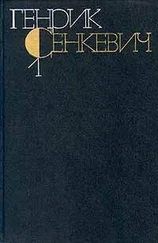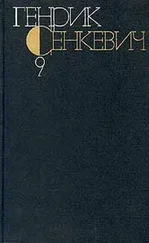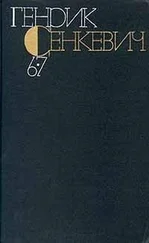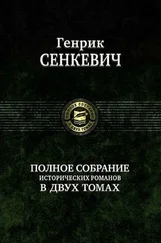Генрик Сенкевич - Pan Michael
Здесь есть возможность читать онлайн «Генрик Сенкевич - Pan Michael» — ознакомительный отрывок электронной книги совершенно бесплатно, а после прочтения отрывка купить полную версию. В некоторых случаях можно слушать аудио, скачать через торрент в формате fb2 и присутствует краткое содержание. Жанр: foreign_antique, foreign_prose, на английском языке. Описание произведения, (предисловие) а так же отзывы посетителей доступны на портале библиотеки ЛибКат.
- Название:Pan Michael
- Автор:
- Жанр:
- Год:неизвестен
- ISBN:нет данных
- Рейтинг книги:3 / 5. Голосов: 1
-
Избранное:Добавить в избранное
- Отзывы:
-
Ваша оценка:
- 60
- 1
- 2
- 3
- 4
- 5
Pan Michael: краткое содержание, описание и аннотация
Предлагаем к чтению аннотацию, описание, краткое содержание или предисловие (зависит от того, что написал сам автор книги «Pan Michael»). Если вы не нашли необходимую информацию о книге — напишите в комментариях, мы постараемся отыскать её.
Pan Michael — читать онлайн ознакомительный отрывок
Ниже представлен текст книги, разбитый по страницам. Система сохранения места последней прочитанной страницы, позволяет с удобством читать онлайн бесплатно книгу «Pan Michael», без необходимости каждый раз заново искать на чём Вы остановились. Поставьте закладку, и сможете в любой момент перейти на страницу, на которой закончили чтение.
Интервал:
Закладка:
"Experience," said Zagloba, modestly, "especially in the military art, comes only with age; and for that cause perhaps the late Pan Konyetspolski, father of the banneret, asked me frequently for counsel, after him Pan Nikolai Pototski, Prince Yeremi Vishnyevetski, Pan Sapyeha, and Pan Charnyetski; but as to the title 'Ulysses,' I have always protested against that from considerations of modesty."
"Still, it is so connected with your grace that at times no one mentions your real name, but says, 'Our Ulysses,' and all divine at once whom the orator means. Therefore, in these difficult and eventful times, when more than one wavers in his thoughts and does not know whither to turn, whom to uphold, I said to myself, 'I will go and hear convictions, free myself from doubt, enlighten my mind with clear counsel.' You will divine, your grace, that I wish to speak of the coming election, in view of which every estimate of candidates may lead to some good; but what must one be which flows from the mouth of your grace? I have heard it repeated with the greatest applause among the knighthood that you are opposed to those foreigners who are pushing themselves on to our lordly throne. In the veins of the Vazas, as you explained, there flowed Yagellon blood, – hence they could not be considered as strangers; but those foreigners, as you said, neither know our ancient Polish customs nor will they respect our liberties, and hence absolute rule may arise easily. I acknowledge to your grace that these are deep words; but pardon me if I inquire whether you really uttered them, or is it public opinion that from custom ascribes all profound sentences to you in the first instance?"
"These ladies are witness," answered Zagloba; "and though this subject is not suited to their judgment, let them speak, since Providence in its inscrutable decrees has given them the gift of speech equally with us."
The vice-chancellor looked involuntarily on Pani Makovetski, and then on the two young ladies nestled up to each other. A moment of silence followed. Suddenly the silvery voice of Basia was heard, —
"I did not hear anything!"
Then she was confused terribly and blushed to her very ears, especially when Zagloba said at once, "Pardon her, your dignity. She is young, therefore giddy. But as to candidates, I have said more than once that our Polish liberty will weep by reason of these foreigners."
"I fear that myself," said the prelate; "but even if we wished some Pole, blood of our blood and bone of our bone, tell me, your grace, to what side should we turn our hearts? Your grace's very thought of a Pole is great, and is spreading through the country like a flame; for I hear that everywhere in the diets which are not fettered by corruption one voice is to be heard, 'A Pole, a Pole!'"
"Justly, justly!" interrupted Zagloba. "Still," continued the vice-chancellor, "it is easier to call for a Pole than to find a fit person; therefore let your grace be not astonished if I ask whom you had in mind."
"Whom had I in mind?" repeated Zagloba, somewhat puzzled; and pouting his lips, he wrinkled his brows. It was difficult for him to give a sudden answer, for hitherto not only had he no one in mind, but in general he had not those ideas at all which the keen prelate had attributed to him. Besides, he knew this himself, and understood that the vice-chancellor was inclining him to some side; but he let himself be inclined purposely, for it flattered him greatly. "I have insisted only in principle that we need a Pole," said he at last; "but to tell the truth, I have not named any man thus far."
"I have heard of the ambitious designs of Prince Boguslav Radzivill," muttered the prelate, as if to himself.
"While there is breath in my nostrils, while the last drop of blood is in my breast," cried Zagloba, with the force of deep conviction, "nothing will come of that! I should not wish to live in a nation so disgraced as to make a traitor and a Judas its king."
"That is the voice not only of reason, but of civic virtue," muttered the vice-chancellor, again.
"Ha!" thought Zagloba, "if you wish to draw me, I will draw you."
Then the vice-chancellor began anew: "When wilt thou sail in, O battered ship of my country? What storms, what rocks are in wait for thee? In truth, it will be evil if a foreigner becomes thy steersman; but it must be so evidently, if among thy sons there is no one better." Here he stretched out his white hands, ornamented with glittering rings, and inclining his head, said with resignation, "Then Condé, or he of Lorraine, or the Prince of Neuberg? There is no other outcome!"
"That is impossible! A Pole!" answered Zagloba.
"Who?" inquired the prelate.
Silence followed. Then the prelate began to speak again: "If there were even one on whom all could agree! Where is there a man who would touch the heart of the knighthood at once, so that no one would dare to murmur against his election? There was one such, the greatest, who had rendered most service, – your worthy friend, O knight, who walked in glory as in sunlight. There was such a – "
"Prince Yeremi Vishnyevetski!" interrupted Zagloba.
"That is true. But he is in the grave."
"His son lives," replied Zagloba.
The vice-chancellor half closed his eyes, and sat some time in silence; all at once he raised his head, looked at Zagloba, and began to speak slowly: "I thank God for having inspired me with the idea of knowing your grace. That is it! the son of the great Yeremi is alive, – a prince young and full of hope, to whom the Commonwealth has a debt to pay. Of his gigantic fortune nothing remains but glory, – that is his only inheritance. Therefore in the present times of corruption, when every man turns his eyes only to where gold is attracting, who will mention his name, who will have the courage to make him a candidate? You? True! But will there be many like you? It is not wonderful that he whose life has been passed in heroic struggles on all fields will not fear to give homage to merit with his vote on the field of election; but will others follow his example?" Here the vice-chancellor fell to thinking, then raised his eyes and spoke on: "God is mightier than all. Who knows His decisions, who knows? When I think how all the knighthood believe and trust you, I see indeed with wonderment that a certain hope enters my heart. Tell me sincerely, has the impossible ever existed for you?"
Конец ознакомительного фрагмента.
Текст предоставлен ООО «ЛитРес».
Прочитайте эту книгу целиком, купив полную легальную версию на ЛитРес.
Безопасно оплатить книгу можно банковской картой Visa, MasterCard, Maestro, со счета мобильного телефона, с платежного терминала, в салоне МТС или Связной, через PayPal, WebMoney, Яндекс.Деньги, QIWI Кошелек, бонусными картами или другим удобным Вам способом.
1
"With Fire and Sword," page 4.
2
The bishop who visited Zagloba at Ketling's house, see pages 121-126.
3
A celebrated bishop of Cracow, famous for ambition and success.
4
A diminutive of endearment for Anna. Anusia is another form.
5
One of the chiefs of a confederacy formed against the king, Yan Kazimir, by soldiers who had not received their pay.
6
The story in Poland is that storks bring all the infants to the country.
Читать дальшеИнтервал:
Закладка:
Похожие книги на «Pan Michael»
Представляем Вашему вниманию похожие книги на «Pan Michael» списком для выбора. Мы отобрали схожую по названию и смыслу литературу в надежде предоставить читателям больше вариантов отыскать новые, интересные, ещё непрочитанные произведения.
Обсуждение, отзывы о книге «Pan Michael» и просто собственные мнения читателей. Оставьте ваши комментарии, напишите, что Вы думаете о произведении, его смысле или главных героях. Укажите что конкретно понравилось, а что нет, и почему Вы так считаете.









